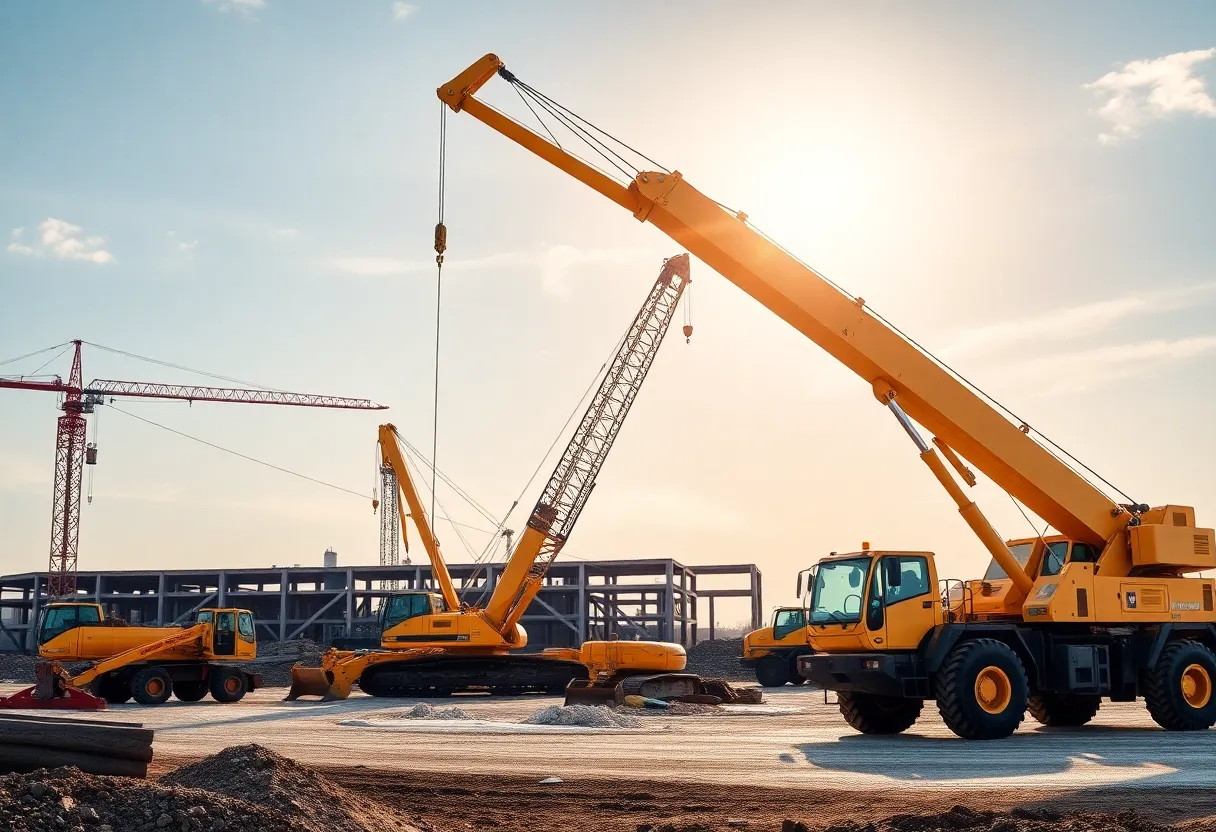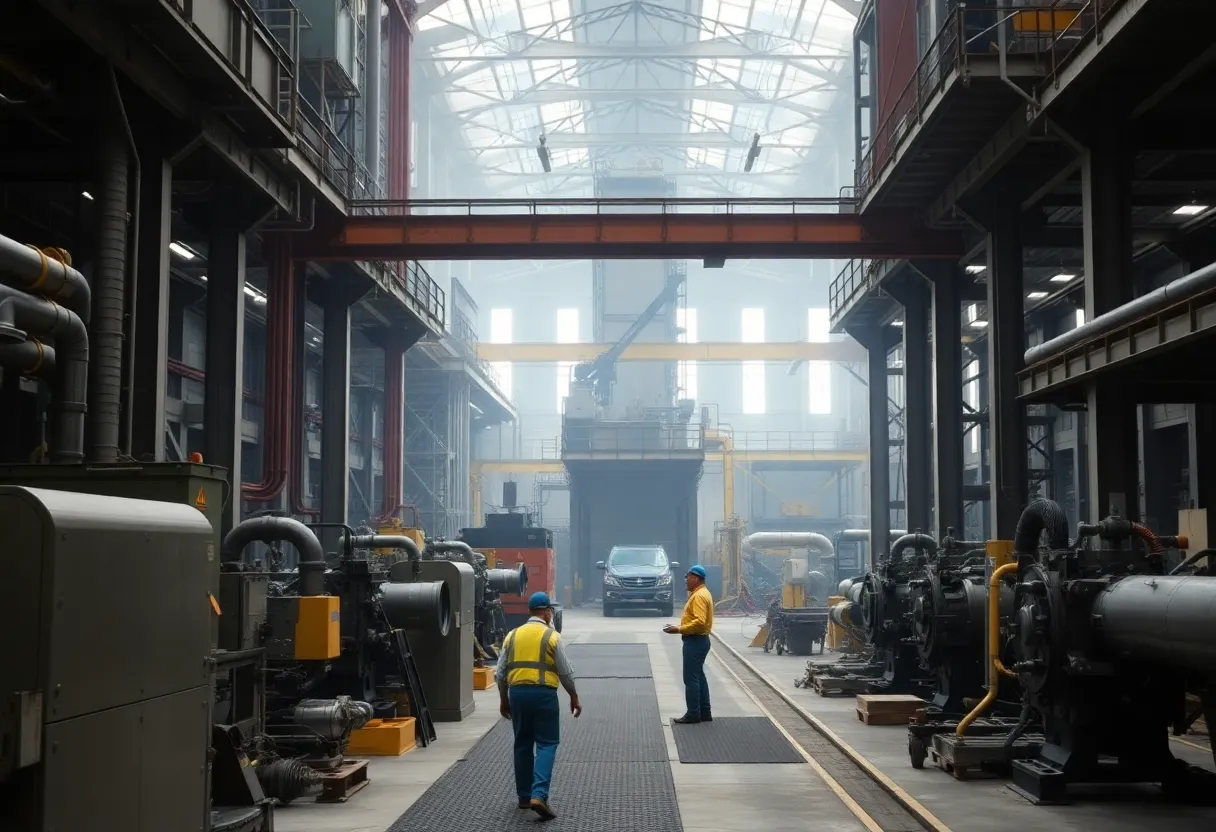Pennsylvania, September 11, 2025
News Summary
House Bill 1319 is making progress in Pennsylvania’s legislature, aimed at extending lien rights to rental equipment companies. This legislation seeks to include rented machinery under the Mechanics’ Lien Law, providing crucial protections for rental suppliers in the construction industry. Such changes are necessary as rental companies face financial risks without these lien rights, ensuring better payment practices and promoting financial stability within the sector.
Pennsylvania HB 1319 Aims to Expand Mechanics’ Lien Rights to Equipment Rentals
HB 1319 is moving through Pennsylvania’s legislature with a specific aim to expand mechanics’ lien rights to include rented equipment. The core approach would redefine rented equipment as materials for lien purposes, granting rental suppliers the same protections that traditional material suppliers currently enjoy under the Mechanics’ Lien Law of 1963. If enacted, rental companies could pursue lien rights whenever equipment remains unpaid, even if the equipment is not permanently incorporated into the finished structure.
Under current law, the mechanics’ lien framework largely shields labor and material suppliers on construction projects but does not provide a clear path for equipment rental firms. This has left some rental suppliers exposed to default risk by contractors, especially for high-value or essential gear such as cranes and other heavy machinery. The bill would formalize a shift in risk allocation by acknowledging rented equipment as a form of material, thereby extending lien protections to rental suppliers as they pursue payment.
The legislative proposal has cleared the House of Representatives and is now before the Senate Judiciary Committee. Early indications of legislative support suggest a real chance for passage, though final action will depend on committee work and subsequent floor votes. Supporters frame the change as aligning Pennsylvania law with the realities of modern construction, where rented equipment plays a critical role alongside traditional materials like bricks and lumber.
If the bill becomes law, rental firms could exercise lien rights for unpaid equipment regardless of whether the equipment becomes a permanent part of the project. This expanded lien reach would help rental suppliers secure payment in a manner similar to other materials suppliers, potentially altering the leverage dynamics between owners, developers, and lenders. Industry observers note that the change could translate into more predictable cash flows for rental firms and help reduce exposure to nonpayment.
Owners and developers would subsequently need to adjust their risk-management practices to accommodate this broader range of lien rights. One practical effect is the requirement to obtain lien waivers not only from contractors and material suppliers but also from rental companies. The practice would help minimize enforceable liens in situations where payment disputes are resolved prior to final project delivery, though it would not eliminate the possibility of a lien if a payment default persists.
The proposed measure also addresses a growing reality in the construction industry: that rental equipment is often as essential to project success as building materials. By recognizing rented gear as a form of material, the bill aims to provide rental suppliers with stronger bargaining power and a clearer path to recover costs when faced with nonpayment. In parallel, the policy could encourage more disciplined payment practices across project teams, potentially improving overall cash-flow predictability for rental firms.
Lawmakers behind the measure describe the change as a straightforward modernization of lien law, linking it to the long-standing goal of reducing financial vulnerability for essential suppliers. The bill’s trajectory suggests that, if enacted, Pennsylvania would join other jurisdictions that have already broadened lien rights to cover equipment rental in recognition of its integral role in construction projects. As the Senate Judiciary Committee reviews the legislation, project stakeholders are watching closely for any changes to scope, applicability, or procedural requirements that might accompany final approval.
In practical terms, owners and developers should begin updating contract terms and payment procedures now. Key steps include tightening lien waiver processes, establishing clear milestones for payments related to rental equipment, and implementing systems to monitor and verify timely payments across all parties. By strengthening these areas, project teams can better manage the potential risk of unpaid equipment rentals, while also preparing for the possible shift in lien-related negotiations if HB 1319 becomes law.
Ultimately, the new lien rights could give rental companies a stronger position in negotiations over payment terms, potentially simplifying resolution of disputes and reducing the likelihood of unpaid equipment delaying or derailing projects. The measure represents a notable development for Pennsylvania’s construction sector and could serve as a model for how lien law evolves to reflect modern construction practices.
Frequently Asked Questions
Q: What is the purpose of HB 1319?
A: The bill seeks to expand mechanics’ lien rights to include rented equipment by classifying rented equipment as materials, enabling rental suppliers to file liens for unpaid equipment.
Q: How would this change affect rental equipment suppliers?
A: Rental suppliers could gain lien rights similar to traditional material suppliers, providing a mechanism to recover payment if a project owner or contractor defaults on payment for rented equipment.
Q: What is the current status of the bill?
A: The bill has passed the House of Representatives and is under consideration by the Senate Judiciary Committee, with ongoing legislative action needed for final passage.
Q: What steps should owners take in light of this proposal?
A: Owners should update contract terms, tighten lien waiver practices, and monitor payment flows to mitigate risks associated with potential unpaid equipment rentals and to prepare for possible changes in lien rights.
Q: What potential impact could this have on project cash flow?
A: The measure aims to improve cash-flow predictability for rental firms by providing clearer lien rights, which may influence payment timing and terms across project teams.
Key Features and Impact – HB 1319 and Equipment Rentals
Note: Values are illustrative representations to convey relative influence and are not official scoring.
Deeper Dive: News & Info About This Topic
Additional Resources
- Pennsylvania Independent: Animal Rights Advocates
- Legal Sports Report: Maryland Online Casino Update
- NH Business Review: Transgender Anti-Discrimination Bill
- IndyStar: Statehouse’s Payday Loans
- Tennessee Conservative News: Criminalization of Parents





